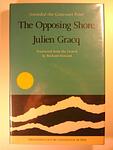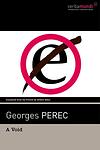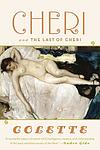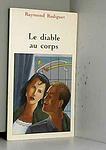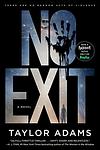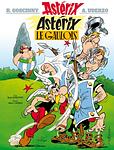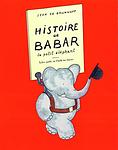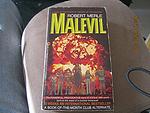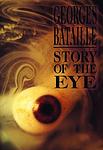The Greatest French "Fiction" Books Since 1910
Click to learn how this list is calculated.
This list represents a comprehensive and trusted collection of the greatest books. Developed through a specialized algorithm, it brings together 294 'best of' book lists to form a definitive guide to the world's most acclaimed books. For those interested in how these books are chosen, additional details can be found on the rankings page.
Genres
Countries
Date Range
Reading Statistics
Click the button below to see how many of these books you've read!
Download
If you're interested in downloading this list as a CSV file for use in a spreadsheet application, you can easily do so by clicking the button below. Please note that to ensure a manageable file size and faster download, the CSV will include details for only the first 500 books.
Download-
26. Alcools by Guillaume Apollinaire
"Alcools" is a collection of poems that explores various themes such as love, loss, and the passage of time. The work is notable for its innovative use of form and syntax, often eschewing traditional punctuation and capitalization. The poems are rich in imagery and symbolism, drawing on a wide range of influences from mythology to modern urban life. The collection is considered a landmark of modernist literature, reflecting the author's unique vision and distinctive poetic voice.
-
27. Delta of Venus by Anaïs Nin
"Delta of Venus" is a collection of fifteen short stories that explore the nature of human sexuality and eroticism. Set in various locations around the world, the book delves into a wide range of sexual experiences and desires, from the conventional to the taboo. The stories are as much about the psychology of desire and the power dynamics inherent in sexual relationships as they are about the act itself, and they are written in a lush, poetic style that is both explicit and deeply introspective.
-
28. Our Lady of the Flowers by Jean Genet
The novel is a dark, poetic exploration of the criminal underworld in Paris, focusing on the life and fantasies of a homosexual prostitute and thief. The protagonist, while in prison, creates an elaborate fantasy world populated by outcasts, convicts, and murderers, including a transgender character who becomes his ideal of beauty and purity. The narrative is filled with graphic depictions of sex and violence, and explores themes of transgression, identity, and the transformative power of the imagination.
-
29. Story of O by Pauline Reage
"Story of O" is a tale of female submission involving a beautiful Parisian fashion photographer named O, who is taught to be constantly available for any form of sexual conduct, to ensure her lover's satisfaction. As part of her training, she agrees to be regularly stripped, bound, whipped, and shared among several men. The story explores the themes of love, freedom, and the paradox of control and power in sexual relationships.
-
30. Thérèse Desqueyroux by François Mauriac
The novel revolves around the life of Thérèse Desqueyroux, a woman trapped in a loveless marriage in rural France. She is married to Bernard for the sake of property and wealth, not love. Feeling suffocated by the societal expectations and her husband's domination, Thérèse tries to poison Bernard. However, her plan fails and she is acquitted due to lack of evidence. The rest of the novel explores Thérèse's introspection, her struggle with guilt, and her quest for redemption and freedom.
-
31. Locus Solus by Raymond Roussel
"Locus Solus" is an avant-garde novel that revolves around the eccentric millionaire inventor, Canterel, who invites a group of guests to visit his estate, Locus Solus. Here, he displays a series of bizarre inventions, each with a detailed backstory. The inventions include a diamond-encrusted machine that constructs intricate mosaics using human teeth, a large glass cage filled with preserved human heads that reenact key moments from their lives, and a device that uses preserved body parts to perform a grotesque ballet. The narrative is heavily detailed and surreal, creating a unique and intriguing exploration of art, life, and the human condition.
-
32. The Flanders Road by Claude Simon
The novel delves into the complexities of memory and the chaos of war, weaving together the narratives of several characters whose lives are entangled by the events of World War II. Set against the backdrop of the German invasion of France, the story unfolds through a series of flashbacks and stream-of-consciousness reflections, primarily focusing on a French cavalry officer captured by the Germans. As the characters grapple with their experiences and relationships, the book explores themes of loss, betrayal, and the elusive nature of truth, all while challenging traditional narrative structures with its fragmented and non-linear approach to storytelling.
-
33. The Opposing Shore by Julien Gracq
The book is a captivating tale of a young military officer who is posted to a remote coastal fortress in an imaginary Mediterranean country. As he awaits a long-anticipated enemy invasion, he finds himself drawn into the local customs and intrigued by the enigmatic presence of the enemy on the opposing shore. The narrative delves into themes of waiting, the passage of time, and the psychological impact of imagined threats, all set against a backdrop of political and military tension.
-
34. The Ravishing of Lol Stein by Marguerite Duras
The Ravishing of Lol Stein is a novel that explores the life of the eponymous character, who is traumatized by her fiancé's betrayal at a ball. This event leads her into a mental breakdown, after which she returns to her hometown and marries an older man. However, her life takes a turn when she becomes obsessed with a young couple, leading her to question her own sanity and reality. The book delves into themes of love, obsession, and the thin line between sanity and madness.
-
35. The Bald Soprano by Eugène Ionesco
"The Bald Soprano" is a play that explores the absurdity of everyday life through a nonsensical narrative. It revolves around two middle-class English couples, the Smiths and the Martins, who engage in meaningless and repetitive conversations. The play is known for its unconventional structure, lack of plot, and the characters' surreal behavior, which are all used to satirize the banality and futility of routine and social norms. The title refers to a character who is never seen or mentioned again after the opening scene.
-
36. A Void by Georges Perec
This novel is a unique and complex piece of literature, written entirely without the use of the letter 'e'. The story follows a group of individuals trying to solve the mysterious disappearance of a friend, while also dealing with their own personal struggles and existential crises. The narrative is filled with wordplay, puzzles, and allusions, and the absence of the letter 'e' serves as a metaphor for loss and absence in the characters' lives.
-
37. Fantômas by Marcel Allain, Pierre Souvestre
The book is a thrilling detective novel set in Paris, revolving around the character of Fantômas, a master criminal with no morals or scruples. Fantômas is a master of disguise, capable of assuming any identity at will, and his criminal activities range from petty theft to murder. The book follows the relentless pursuit of Fantômas by the determined Inspector Juve, leading to a series of exciting and suspenseful encounters.
-
38. Cheri by Colette
"Cheri" is a tale of forbidden love set in the Belle Époque era of Paris. The story revolves around a beautiful, young man named Chéri and his passionate affair with Léa, a woman nearly twice his age. Despite their age difference and societal norms, they share a six-year relationship until Chéri's mother arranges for him to marry a woman his own age. The novel explores the themes of love, aging, and the passage of time, showcasing the complexities of their relationship and the consequences of their separation.
-
39. Le Diable au corps by Raymond Radiguet
"Le Diable au corps" is a French novel focusing on a teenage boy who engages in a passionate and scandalous affair with a woman whose husband is fighting at the front during World War I. The novel explores themes of love, betrayal, and societal norms, while highlighting the consequences of their illicit relationship, including the woman's pregnancy, the boy's expulsion from school, and the tragic death of the woman during childbirth. The story is a poignant portrayal of youthful recklessness, war's impact on society, and the destructive power of love.
-
40. No Exit by Jean Paul Sartre
The book is a profound existentialist play that delves into the human psyche and the concept of hell through the experiences of three deceased characters who find themselves trapped together in a mysterious, windowless room. As they engage in intense psychological games and confront the worst aspects of their earthly behaviors, they come to the harrowing realization that their torment comes not from any external punishment, but from each other and the eternal company they are forced to keep. The narrative explores themes of freedom, responsibility, and the often unbearable nature of human existence, encapsulated in the famous line, "Hell is other people."
-
41. The Diary of a Country Priest by Georges Bernanos
"The Diary of a Country Priest" is a novel centered around a young, inexperienced priest assigned to his first parish in rural France. The narrative unfolds through the priest's diary entries, revealing his struggles with his health, faith, and the indifference or hostility of his parishioners. Despite the hardships, the priest remains committed to his vocation and the spiritual welfare of his community. His journey is marked by self-doubt, loneliness, and a humble yet profound understanding of suffering and grace.
-
42. Platform by Michel Houellebecq
"Platform" is a provocative novel that explores the intersections of sex, business, and terrorism. The protagonist, a middle-aged man working in the French Ministry of Culture, embarks on a journey to Thailand after the death of his father. While there, he falls in love with a travel executive and they start a business capitalizing on sex tourism. However, their venture is violently disrupted by an extremist group, leading to tragic consequences. The novel is a critique of Western consumerism and a commentary on the clash between Western and Islamic cultures.
-
43. W, or the Memory of Childhood by Georges Perec
"W, or the Memory of Childhood" is a unique blend of autobiographical recollections and fictional narrative. The novel alternates between two storylines: one describing the childhood of a Jewish boy during World War II, and the other detailing a dystopian society on a mysterious island known as "W". The book explores themes of memory, trauma, and the loss of innocence, while also offering a critique of totalitarian regimes. The two narratives gradually converge, revealing the traumatic underpinnings of the protagonist's life and the allegorical nature of "W".
-
44. The Bridge Of Beyond by Simone Schwarz-Bart
This novel is an evocative portrayal of several generations of women in Guadeloupe, a tapestry of their joys, sufferings, and resilient spirits against the backdrop of post-slavery Caribbean society. The story centers on the life of Telumee, the last in a line of proud Lougandor women, as she navigates the complexities of love, poverty, and the lingering effects of colonialism. Rich in Creole culture, the narrative weaves together the supernatural with the everyday, creating a lyrical and poignant exploration of the enduring human spirit and the bonds of family, tradition, and heritage that shape our destinies.
-
45. The Erasers by Alain Robbe-Grillet
The book is a complex and innovative narrative that blurs the lines between reality and imagination, following a detective who is investigating a series of connected murders in a nameless town. As the detective delves deeper into the case, the story unfolds in a non-linear fashion, challenging the reader's perception of time and causality. The novel's structure, characterized by repetitive descriptions and a lack of clear resolution, reflects the themes of uncertainty and the elusiveness of truth, ultimately questioning the nature of existence and the reliability of memory and perception.
-
46. Asterix the Gaul by Rene Goscinny
In this comic book, a small Gaulish village in ancient France resists Roman occupation with the help of a magic potion that gives them superhuman strength. The story revolves around the adventures of a brave and clever warrior and his lovable, hefty sidekick. Their adventures are filled with humor, satire, and historical references, as they outwit their Roman adversaries and protect their village from various threats.
-
47. Histoire de Babar by Jean de Brunhoff
This children's book tells the story of a young elephant named Babar who escapes the jungle after his mother is killed by a hunter. He is discovered in a city by a kind Old Lady who educates him and teaches him the ways of civilized life. Babar eventually returns to the jungle where he is made king of the elephants and marries his cousin Celeste. The tale explores themes of cultural difference, the effects of colonization, and the value of education.
-
48. Suite Française by Irène Némirovsky
"Suite Française" is a two-part novel set during the early years of World War II in France. The first part, "Storm in June," follows a group of Parisians as they flee the Nazi invasion. The second part, "Dolce," shows life in a small French village under German occupation. The novel explores themes of love, loss, and survival, and provides a unique perspective on life in France during the war. The book was written during the war but was not discovered and published until many years later.
-
49. Malevil by Robert Merle
Set in the aftermath of a devastating nuclear war, the novel follows a group of survivors who find refuge in a medieval castle named Malevil. The survivors, led by the protagonist, must navigate the challenges of rebuilding their lives in a drastically altered world. They grapple with issues of survival, community, morality, and leadership as they encounter other groups of survivors with different philosophies and intentions. The story is a gripping exploration of human resilience, the will to maintain civilization, and the complexities of interpersonal relationships in a post-apocalyptic setting.
-
50. Blue of Noon by Georges Bataille
"Blue of Noon" is a provocative novel set in 1930s Europe during the rise of fascism. The story follows the life of an Englishman living in Paris, who is embroiled in a self-destructive cycle of sexual escapades and political extremism. His journey takes him through various European cities, where he engages in debauchery and encounters the political turmoil of the time. The book explores themes of existentialism, nihilism, and the human condition, offering a dark and complex portrayal of a man's struggle with his inner demons and the chaotic world around him.
Reading Statistics
Click the button below to see how many of these books you've read!
Download
If you're interested in downloading this list as a CSV file for use in a spreadsheet application, you can easily do so by clicking the button below. Please note that to ensure a manageable file size and faster download, the CSV will include details for only the first 500 books.
Download






